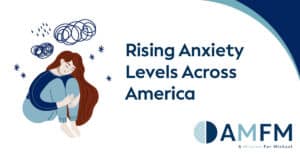Sometimes, people in abusive relationships find it difficult to leave their abuser, despite all indications showing they will be better off elsewhere. Such persons are said to be in a trauma bond with their abuser.
What does trauma bonding mean?
The term ‘trauma bonding’ describes the trapping of another person with the “misuse of fear, excitement, and sexual feelings”. Cycles of abuse, followed by love and care, can create a hormonal bond between the victim and the abuser. Consequently, the victim harbors intense feelings for their abuser and finds it difficult to leave them., even when they meet people who consistently treat them well.
Trauma bonding can affect anyone who stays long enough in an abusive relationship. However, it’s more common who experienced traumatic relationships at a very young age. The theory is that such persons are more vulnerable to developing trauma bonds because their nervous system already has experience with the abuse-reward cycle.
How to recognize the signs of trauma bonding?
Many people trapped in trauma bonds often find it challenging to recognize there’s a problem in the first place. Below are some warning signs that may indicate you’re a victim of trauma bonding:
- You wish to leave the relationship, but you can’t seem to find the courage to cut off the other party completely.
- You feel powerless and stuck in a relationship, but you always try to find the silver lining.
- You know your partner can be abusive but still console yourself with other ‘good’ things about them.
- You’re in a relationship you won’t want anyone you love to be in.
- Your partner continually fails to fulfill their promises, yet you find excuses for them.
- Your family or friends have advised you to leave, yet you find yourself staying put.
- You have tried to leave, but you feel hopeless or even physically ill.
- The other party constantly exhibits characteristics that remind you of an abuser.
- You keep on justifying their behavior even when you know it’s wrong.
How do you treat a trauma bond?
Staying in any form of abusive relationship can be detrimental to your physical and emotional well-being, and becoming trauma bonded with your abuser can further complicate the situation. Below are a few tips that can set you on the path to breaking the trauma bond:
Educate yourself
The more you know about trauma bonding, the more likely you will see your relationship for what it truly is. If you’re currently trauma-bonded with your partner, knowing that there’s a problem is the first step towards breaking free. And the easiest way to know is by being aware.
Seek help
It’s virtually impossible to overcome trauma-bonding through sheer willpower. To truly break free, you’ll need the help of experts who understand abuse and everything that has to do with trauma-bonding. Seeing a therapist is important because you do not only need to break free from your current relationship. You also need to heal from past traumas that can make you vulnerable to becoming trauma-bonded with an abuser.
Do you need the help of specialists who can help you break free from a trauma-bond and find complete healing? You need not look beyond A Mission for Michael. Contact us on (844) 532-8882 to learn more about our programs or verify your insurance.
San Juan Capistrano CA 92675 US








